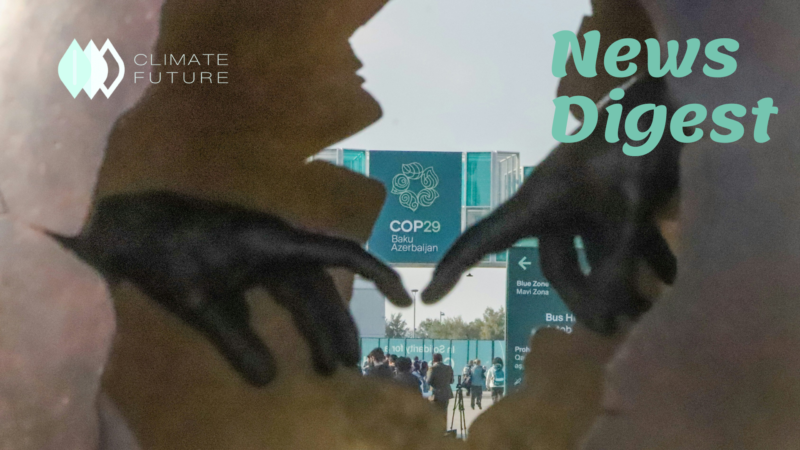COP27: Week two opens with focus on water, women and more negotiations on ‘loss and damage’
Women and young girls in all the diversity have been guiding the climate movement for centuries for the young climate activist. They face more obstacles when adapting to climate change. They suffer greater economic repercussions and have to bear increased domestic work and unpaid care when disasters hit. They are much more vulnerable to potential violence caused by the climate crisis. According to UN Women, women are not victims and evidence shows that their participation in the parliaments can lead countries to take up more effective climate change policies. Women and girls are powerful leaders to solve the climate crisis. However, they are largely underestimated and undervalued with limited access to technology and training extension services for the effective adaptation to the climate change impacts. Mary Robinson, the first woman President of Ireland said that COP27 should recognize the leadership of girls and women. She has started a movement to stimulate climate action with a feminist approach alongside other women leaders. A new report from the NGO mentions how the rising damages and losses caused by climate impacts are having terrible consequences on girls and women with increasing risk of domestic and sexual violence. The NGO Union of Concerned Scientists said during a press conference to start financing the loss and damage facility with funds to start flowing no later than 2024.
‘Our futures are being stolen!’ Youth activists tell COP27 negotiators it’s past time to tackle ‘loss and damage’
‘Loss and damage’ means the costs that are being incurred by countries which have donated the least to climate change but suffering its impacts such as increasing common extreme weather events and sea-level rises. Developing countries such as Bangladesh, Pakistan and a good number of African nations are pressured to pay very high costs to recover from climate related disasters. The call from the youth was clear. They want to establish a loss and damage finance facility which can give additional and readily accessible funding to help developing nations adjust and limit the life changing impacts on young people. An activist from the Philippines said “we don’t want loans and more debt.” During Youth and Science Day at COP27, scientists underlined that losses and damages are already happening and will increase obviously based on current trajectories models.
Dirty fossil fuel investments and a new AI inventory of global emissions in the spotlight during ‘Finance Day’ at COP27
More than 50 activists of all backgrounds and ages took over the ‘Blue Zone’ which is the main area of the conference center in Sharm el-Sheikh supervised by the UN. Susan Huang, a representative of the NGO Oil Change International, shed light on the fact that rich countries are still pouring money into fossil fuels currently when we need an immediate transition to renewable energy. She mentioned that the investments are causing huge damage by devastating livelihoods and destroying biodiversity across the world. The activists presented the best way to increase energy access worldwide and the need for the most vulnerable community with the support of renewable energy plans. Finance day at COP27 emphasized that trillions of dollars’ worth of investments are required yearly to achieve far-reaching and rapid transformations to address the impact of the climate crisis and hand over the objectives of the Paris Agreement. Experts agree that financial push is needed from all sectors, private or public, equity or debt, philanthropic or commercial. According to UN Climate Change, project investors and developers must focus on investing and preparing in projects which build resilience and protect the vulnerable group from the negative impacts of climate change to develop innovation for carbon neutral and climate resilient transformation.
UN chief highlights crucial role of G20 in resolving global crises
Geopolitical divisions are making old conflicts hard to resolve and creating new ones while people around the world are being hit from every direction by the rising cost of living and climate change. The UN Secretary General proposed to create a Climate Solidarity Pact by bringing developed and emerging economies together to combine resources and benefit everyone on earth. Wealthy nations and international financial institutions should deliver technical assistance and funding to support emerging economies in upgrading their transition to renewable energy. That will help to end dependence on fossil fuels while providing affordable, universal and sustainable energy for all. Developing countries are not able to access the required finance to achieve Sustainable Development Goals (SDGs) which include investing in healthcare and education and reducing poverty and hunger. It is also crucial to focus on the need for urgent action to prevent hunger in a rising number of places around the world.



